
Bookposting, mostly history. Occasionally post about literature. Threads in 'Highlights'
4 subscribers
How to get URL link on X (Twitter) App

https://x.com/haravayin_hogh/status/1769594424450044239
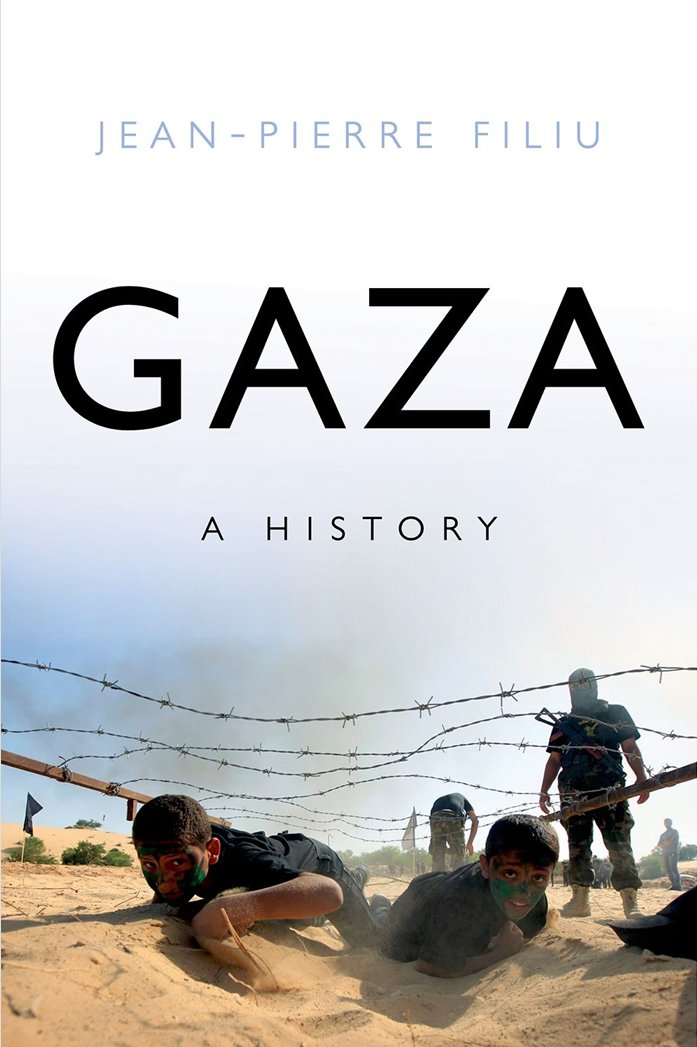
 Antique points of interest. Soft local soil always lent to siege tunnels. Post-Alexander Gaza was totally Hellenised, with negligible✡️, so☦️came quite late. Saint Porphyry deviously had persecution of pagans authorised by "petitioning" the tolerant Emperor Arcadius' infant son.
Antique points of interest. Soft local soil always lent to siege tunnels. Post-Alexander Gaza was totally Hellenised, with negligible✡️, so☦️came quite late. Saint Porphyry deviously had persecution of pagans authorised by "petitioning" the tolerant Emperor Arcadius' infant son. 
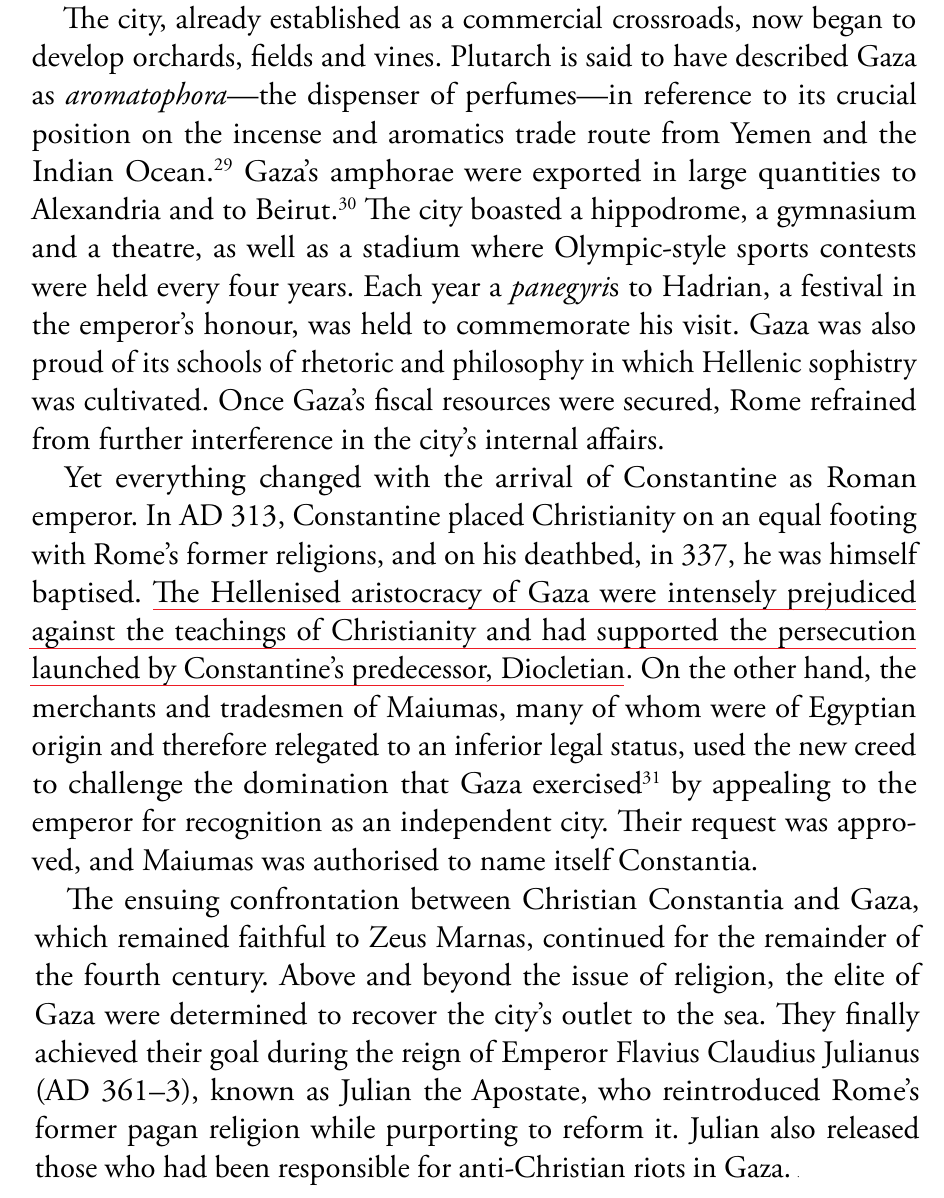
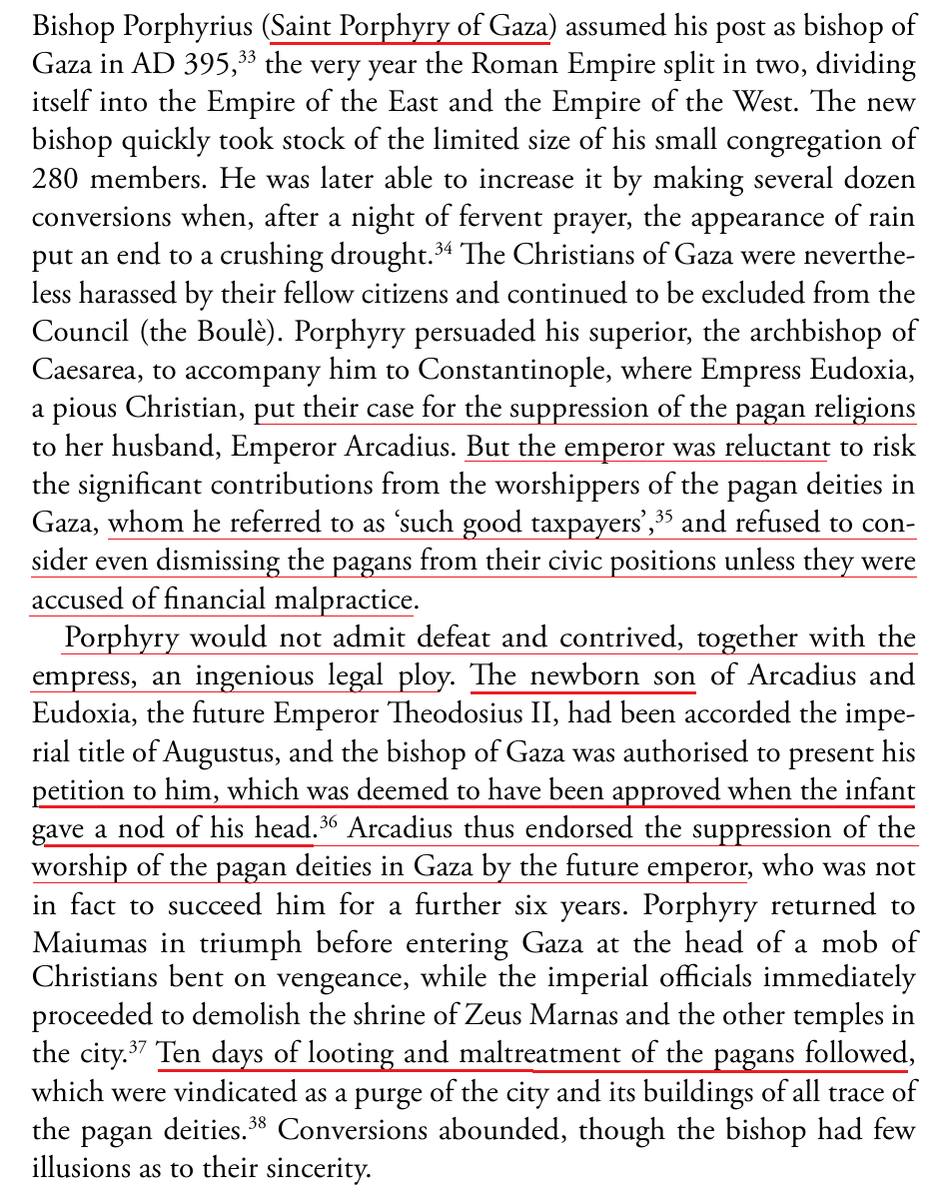
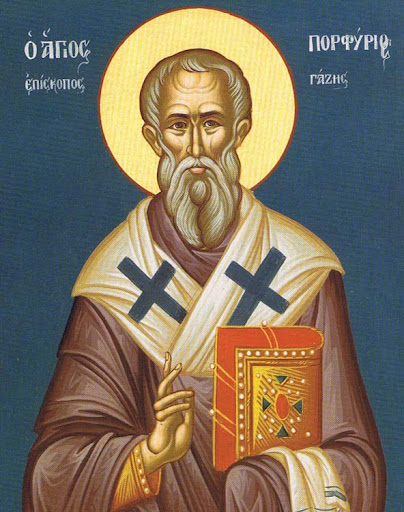



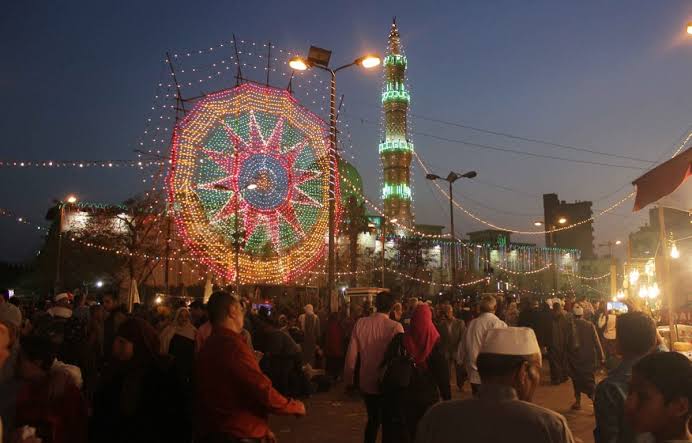 Moulids are mostly celebrations of Muslim saints, though Christian & even (until 1948) Jewish ones also appeared. Surviving hidden Egyptian Sufi traditions. Given Egypt's teeming population & density, some Moulid festivals are bigger in terms of attendees than the Haj itself.
Moulids are mostly celebrations of Muslim saints, though Christian & even (until 1948) Jewish ones also appeared. Surviving hidden Egyptian Sufi traditions. Given Egypt's teeming population & density, some Moulid festivals are bigger in terms of attendees than the Haj itself. 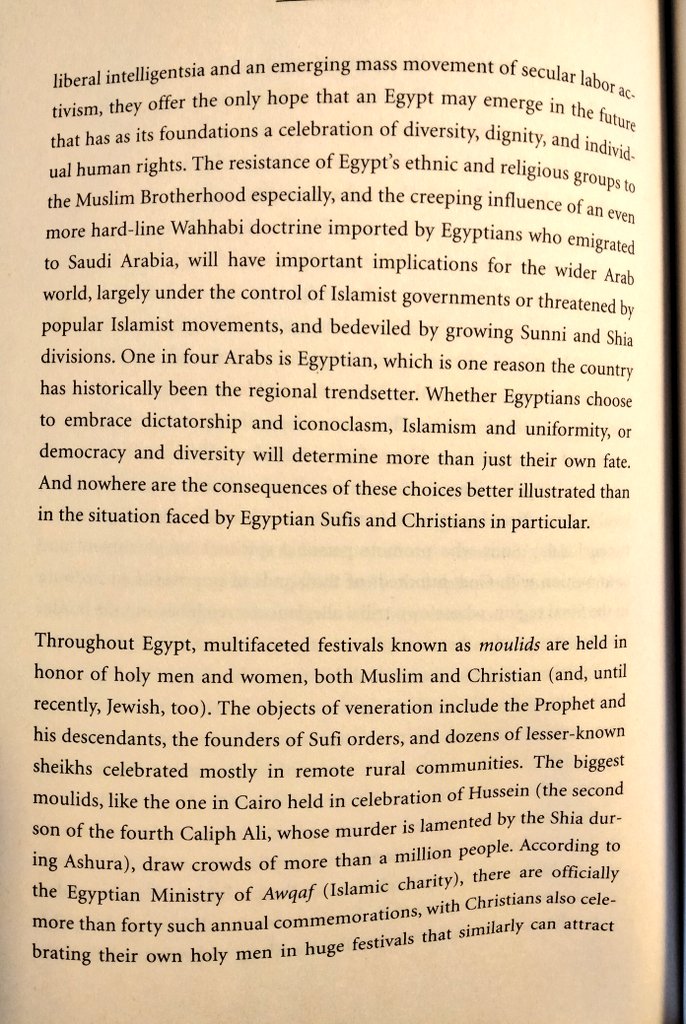
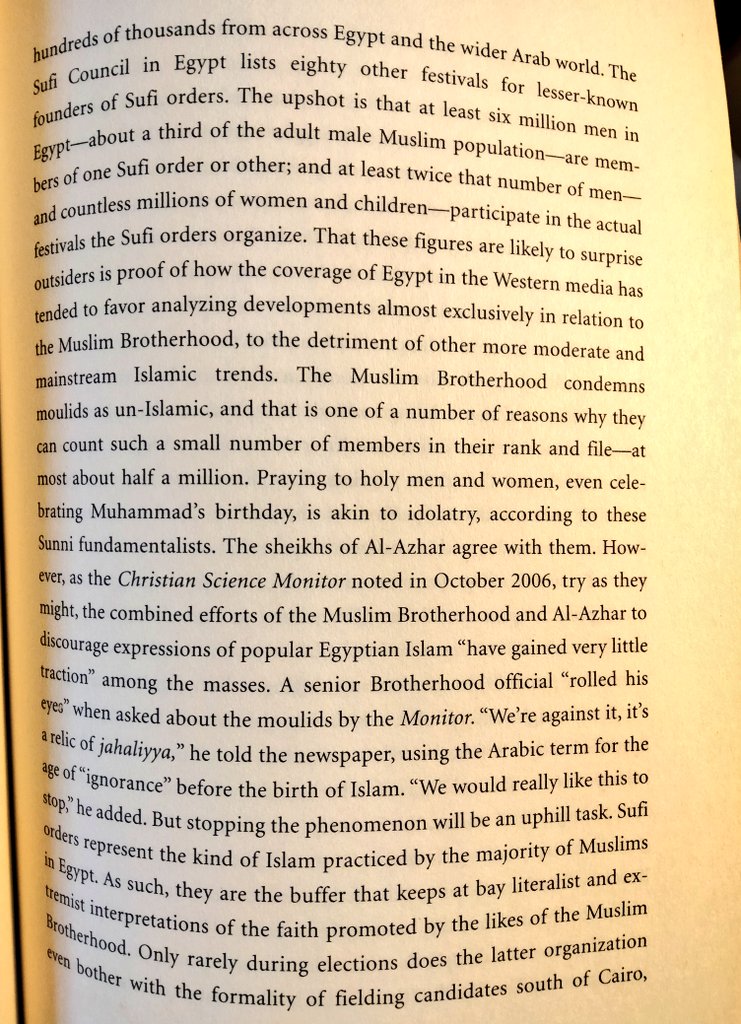
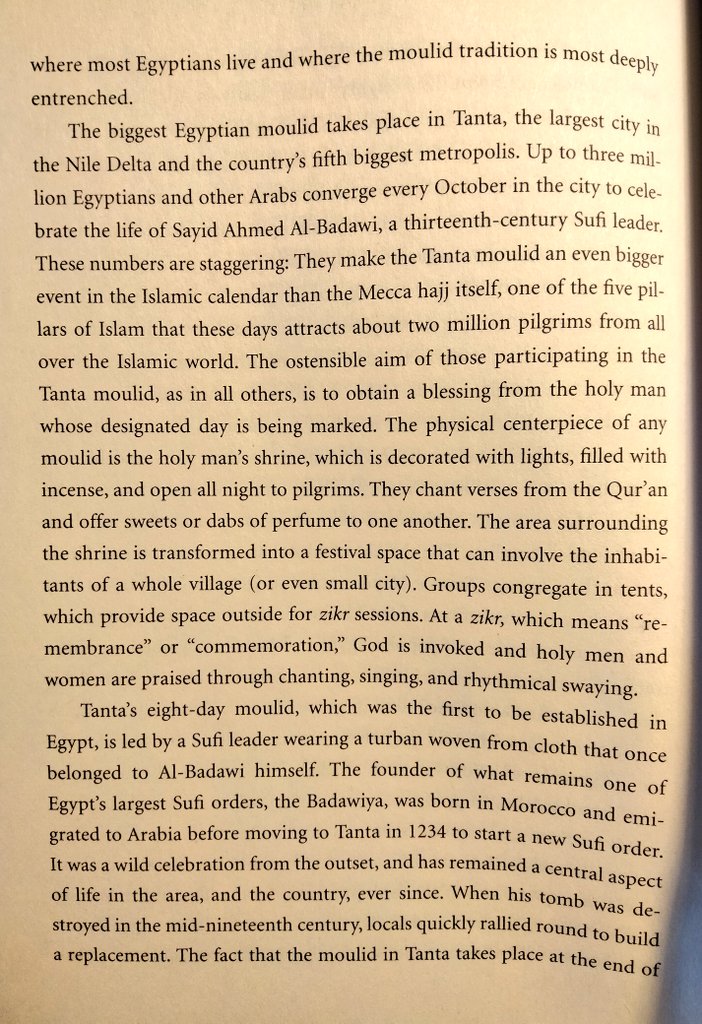
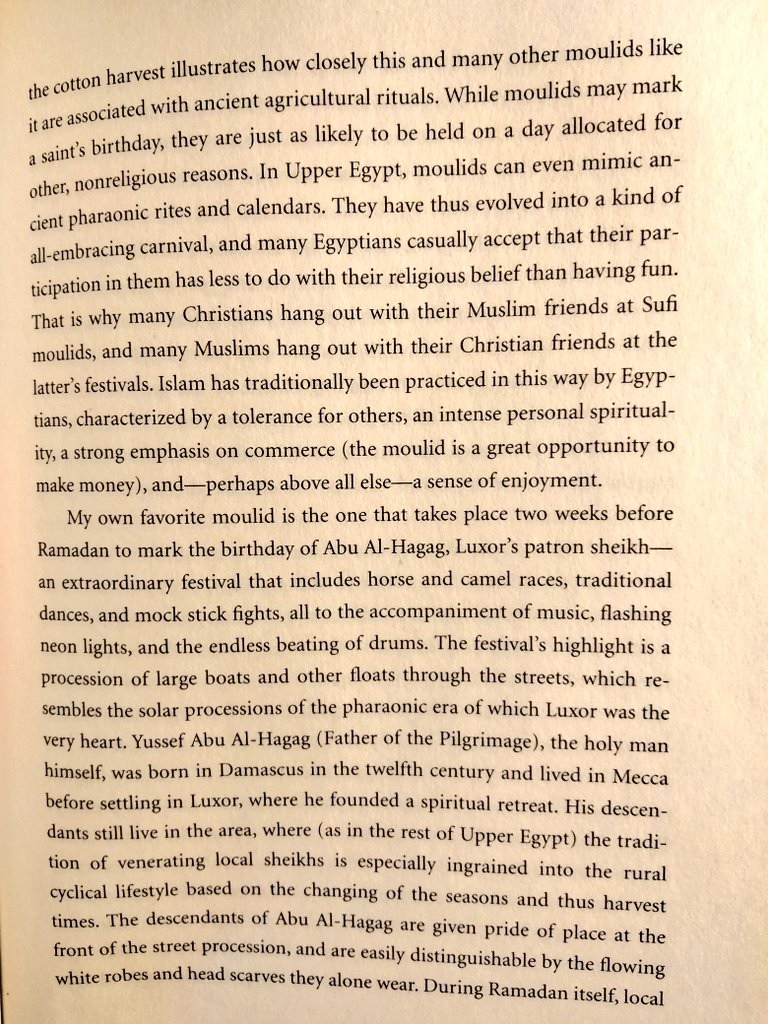

 Opening remarks on ephemeral nature of nomad-empires, citing Al-Ghazali. Examples such as the Avars inadvertently teaching their formerly passive Slav subjects how to fight, sowing their own overthrow/assimilation. Nomad-origin Mongol & Parthian states exceptional in longevity.
Opening remarks on ephemeral nature of nomad-empires, citing Al-Ghazali. Examples such as the Avars inadvertently teaching their formerly passive Slav subjects how to fight, sowing their own overthrow/assimilation. Nomad-origin Mongol & Parthian states exceptional in longevity. 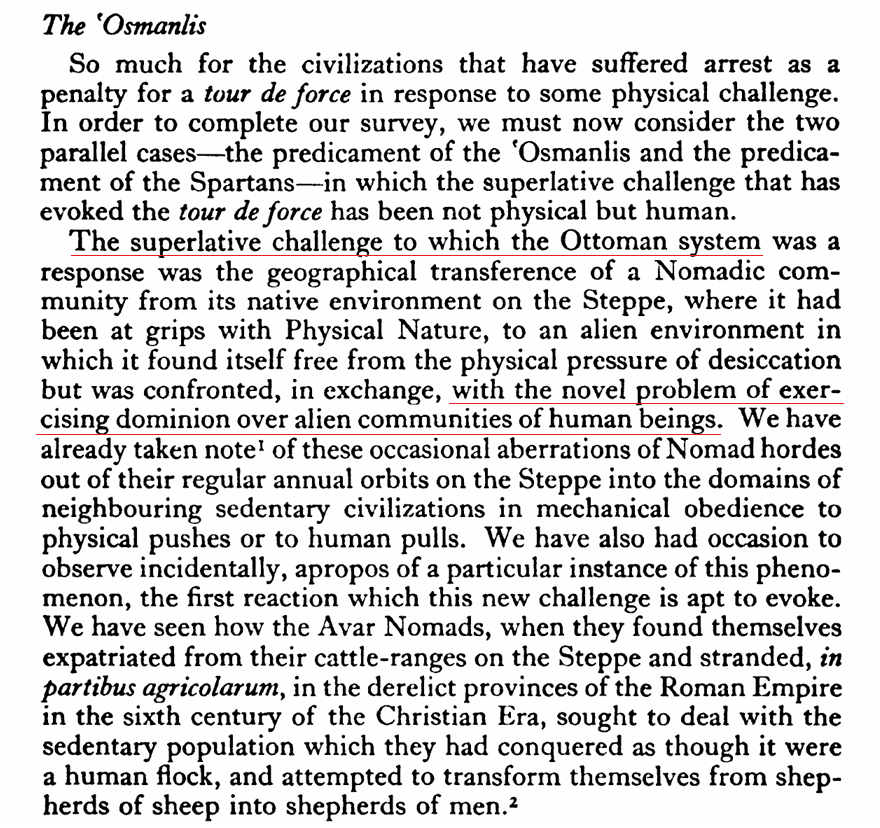
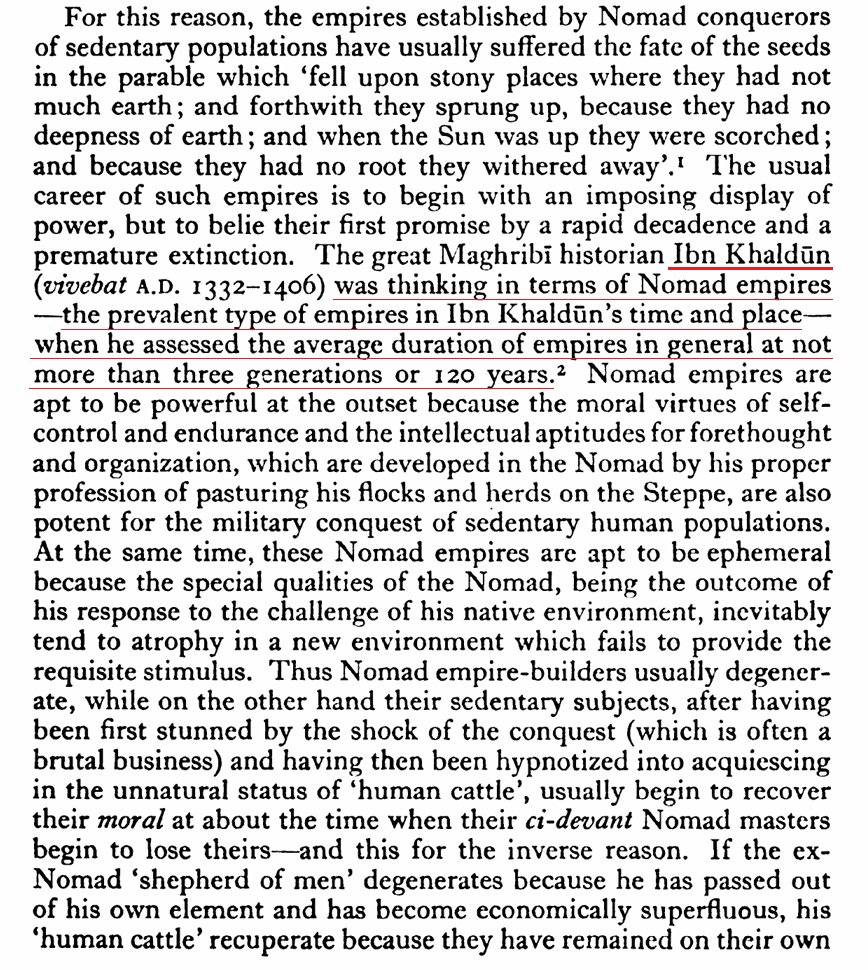


 The uniting narrative of what would become Likud.
The uniting narrative of what would become Likud. 

 Author makes clear from the start that 🇦🇺 is not some poor exploited US colony: its leaders are enthusiastic participants in the 🇺🇸 Empire.
Author makes clear from the start that 🇦🇺 is not some poor exploited US colony: its leaders are enthusiastic participants in the 🇺🇸 Empire. 


https://twitter.com/haravayin_hogh/status/1919175916472631475
 Furthest Roman expedition into the Atlas. Its leader, G.Suetonius Paulinus, later defeated Boudica's revolt in Britain.
Furthest Roman expedition into the Atlas. Its leader, G.Suetonius Paulinus, later defeated Boudica's revolt in Britain. 
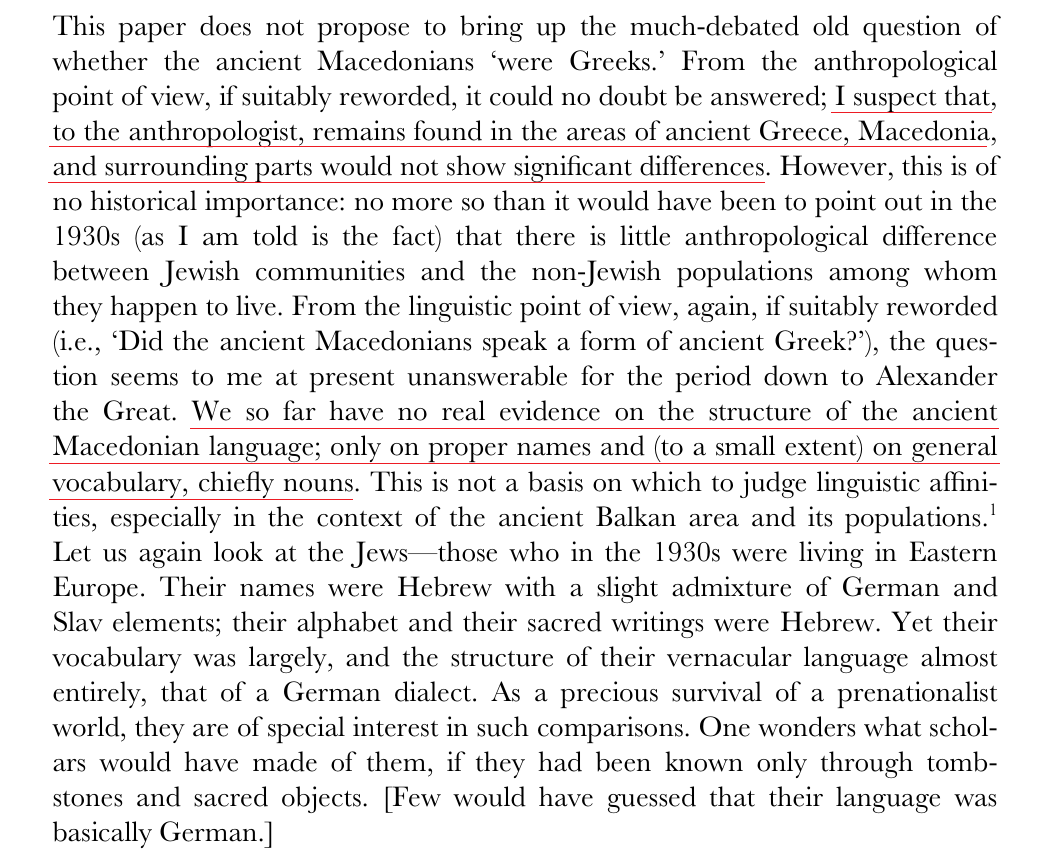

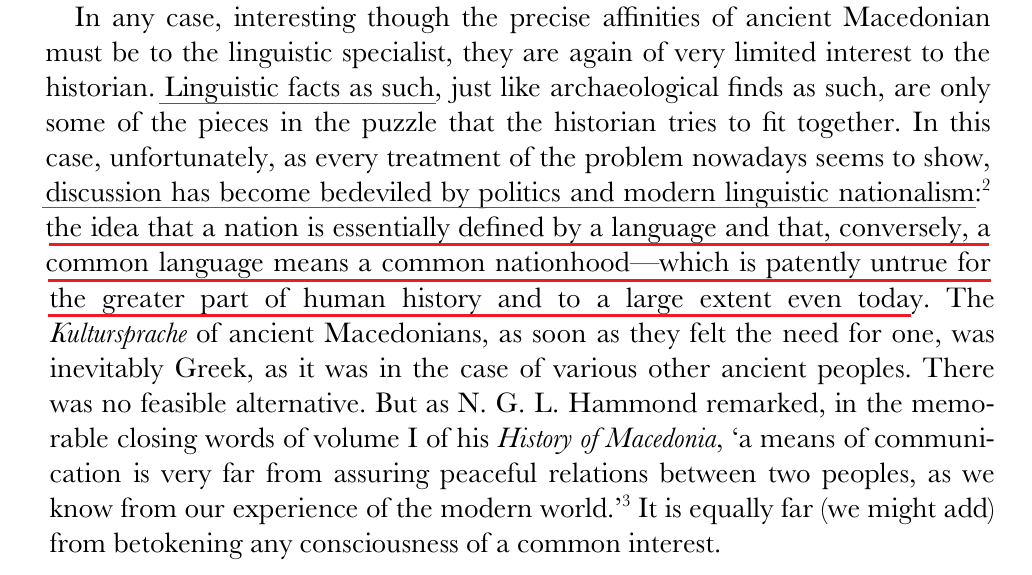



https://twitter.com/haravayin_hogh/status/1868288699223642539
 The biggest movement for 🇵🇱 independence, the National Democrats, had very different ideas from Piłsudski's faction that won out after WW1.
The biggest movement for 🇵🇱 independence, the National Democrats, had very different ideas from Piłsudski's faction that won out after WW1.




 Pre-colonial culturo-political divisions of the Yoruba. Like the Greeks or Sumerians, they were divide into warring city-states, but acknowledged their unity in language and religion.
Pre-colonial culturo-political divisions of the Yoruba. Like the Greeks or Sumerians, they were divide into warring city-states, but acknowledged their unity in language and religion.
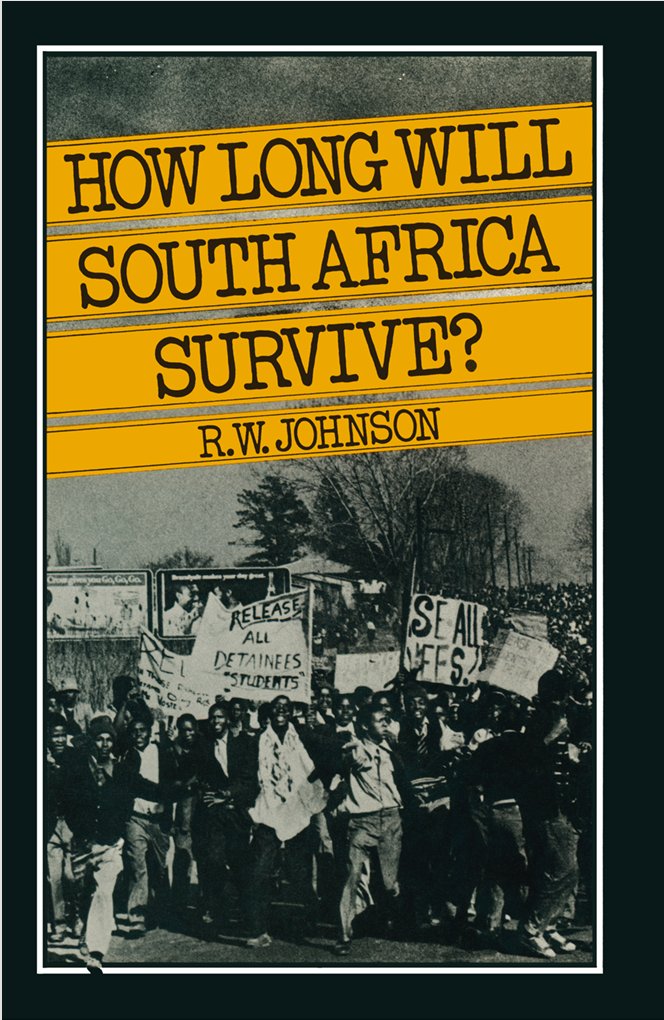
 Author opens with the 1960 Sharpeville massacre, contends SA government very narrowly missed a violent overthrow, just as the Tsarist Russia barely dodged the abortive 1905 Revolution.
Author opens with the 1960 Sharpeville massacre, contends SA government very narrowly missed a violent overthrow, just as the Tsarist Russia barely dodged the abortive 1905 Revolution. 




 Greek authors had acknowledged from earliest times there had been on their lands an earlier Civilisation than their own, which they had since taken over. But beyond their existence, nothing was known of these "Pelasgians" or "Trojans".
Greek authors had acknowledged from earliest times there had been on their lands an earlier Civilisation than their own, which they had since taken over. But beyond their existence, nothing was known of these "Pelasgians" or "Trojans".


 There are very few good sources on Anatolian between the Hittite civilisation's collapse & Persian conquest.
There are very few good sources on Anatolian between the Hittite civilisation's collapse & Persian conquest. 

 Authors state urgency of their mission, having scant remaining time to describe Aboriginal social organisation & beliefs, already rapidly going extinct at the time of writing. Book mostly focuses on the Arunda (Arendte, spellings vary) still one of the most numerous groups today.
Authors state urgency of their mission, having scant remaining time to describe Aboriginal social organisation & beliefs, already rapidly going extinct at the time of writing. Book mostly focuses on the Arunda (Arendte, spellings vary) still one of the most numerous groups today. 



 Though we can only guess at the true number, roughly between 80-95% of all Greco-Roman literature has been lost.
Though we can only guess at the true number, roughly between 80-95% of all Greco-Roman literature has been lost. 



 Tasmania is a cool temperate, mountainous & windyswept island, roughly the size of a united Ireland.
Tasmania is a cool temperate, mountainous & windyswept island, roughly the size of a united Ireland.



 A key point to understanding this book:
A key point to understanding this book: 


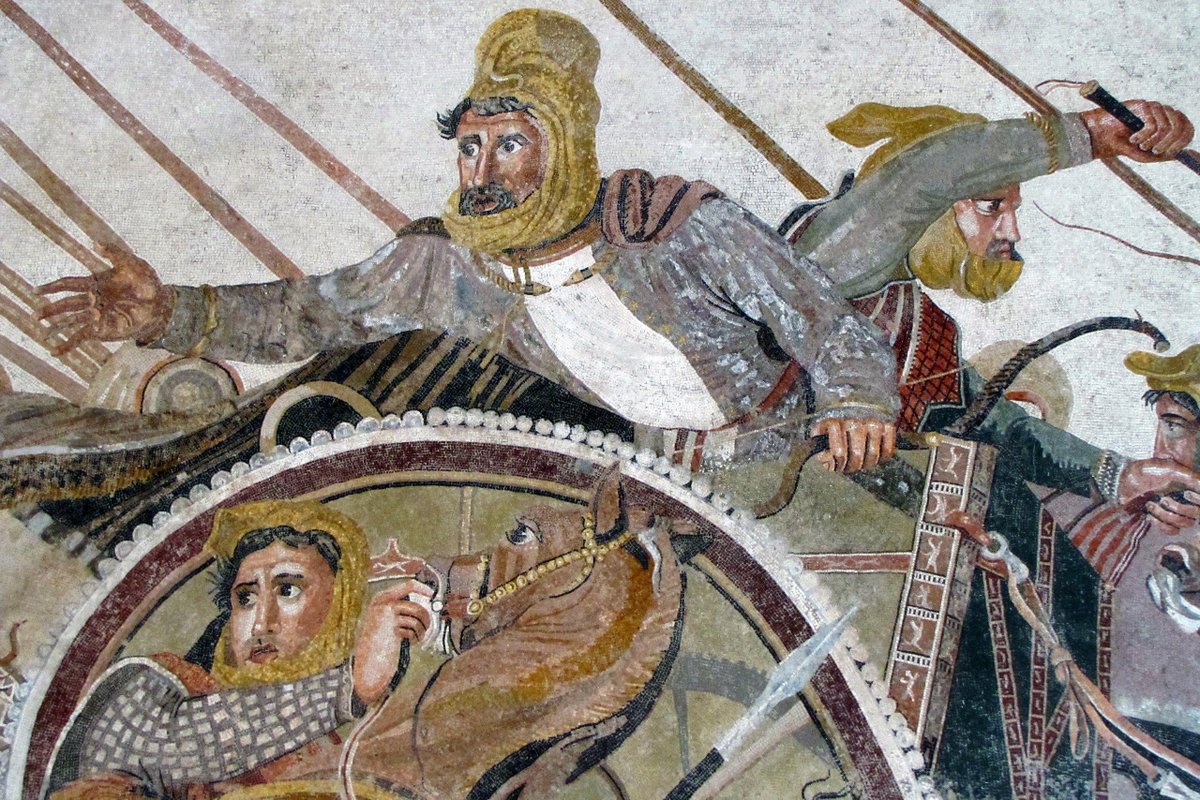 Darius III (hence just Darius) won the throne of the world's largest yet-known Empire as a usurper, from fairly obscure origins.
Darius III (hence just Darius) won the throne of the world's largest yet-known Empire as a usurper, from fairly obscure origins. 


 With a lack of any written records, the process of state formation in the Nigeria region remains murky.
With a lack of any written records, the process of state formation in the Nigeria region remains murky. 


 A key to understanding Gorbachev, ignored by both Western & Russian historiography: "He was the last true Leninist believer".
A key to understanding Gorbachev, ignored by both Western & Russian historiography: "He was the last true Leninist believer". 